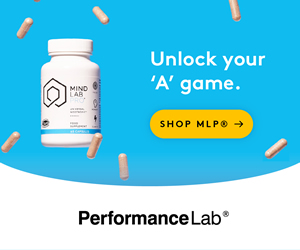Health & Wellness
What is Astaxanthin: Benefits and Uses
Discover the benefits and uses of astaxanthin, a powerful antioxidant. Learn how it improves skin, eye health, and more in this comprehensive guide.
Have you ever wondered about natural substances that could boost your health in powerful ways? Astaxanthin might not be a household name, but it’s increasingly gaining attention for its remarkable benefits. Let’s delve into what Astaxanthin is, its myriad uses, and why it’s an exciting topic in the world of health and wellness.

What is Astaxanthin?
Astaxanthin is a type of carotenoid, a class of pigments found naturally in a variety of plants and animals. Known for its reddish color, this substance is what gives flamingos their pink hue and salmon their rich, red-orange flesh. It’s more than just a pigment, though—it’s a potent antioxidant.
Origin and Sources
Astaxanthin is primarily found in algae, which are then consumed by marine creatures like shrimp, salmon, and even krill. The diagram below outlines the primary natural sources of astaxanthin:
| Source | Origin | Typical Uses |
|---|---|---|
| Microalgae | Haematococcus pluvialis | Supplements, cosmetics |
| Salmon | Wild and farmed fish | Culinary uses, supplements |
| Krill | Small crustaceans | Supplements, aquaculture feed |
| Trout | Freshwater fish | Cuisine, supplements |
| Flamingos | Pink-colored birds | Observational studies |
Chemical Structure
The chemical structure of astaxanthin is fascinating. It contains a long chain with a series of conjugated double bonds, giving it the ability to clutch onto electrons and neutralize free radicals more efficiently than other antioxidants.
Comparison with Other Carotenoids
Astaxanthin is often compared with beta-carotene and lutein, other well-known carotenoids. Here’s a quick rundown:
| Carotenoid | Source | Main Benefits |
|---|---|---|
| Astaxanthin | Algae, salmon | Potent antioxidant, anti-inflammatory |
| Beta-Carotene | Carrots, sweet potatoes | Vitamin A precursor, immune support |
| Lutein | Leafy greens, eggs | Eye health, antioxidant |
While each carotenoid offers health benefits, astaxanthin stands out for its potent antioxidant properties, often being referred to as “the king of carotenoids.”
Health Benefits of Astaxanthin
So, why is astaxanthin generating such buzz? The health benefits attributed to this powerful carotenoid are numerous and impressive.
Antioxidant Powerhouse
Astaxanthin’s unique molecular structure allows it to effectively neutralize free radicals, which are unstable molecules that can damage your cells. In fact, studies suggest that astaxanthin is up to 6,000 times more potent than vitamin C, 800 times stronger than CoQ10, and 75 times more effective than alpha-lipoic acid in combating oxidative stress.
Anti-Inflammatory Properties
Chronic inflammation is a precursor to many diseases, including arthritis, heart disease, and even cancer. Astaxanthin has been shown to inhibit inflammatory markers and reduce oxidative stress, thus offering protection against chronic inflammation.
Skin Health
Astaxanthin has been found to improve skin elasticity, reduce wrinkles, and provide UV protection. Topical applications and oral supplements have shown promise in enhancing overall skin health. Users report more hydrated, resilient skin after consistent use.
Eye Health
Given its antioxidant properties, astaxanthin contributes to eye health by reducing oxidative damage within the eye. This includes protection against conditions like age-related macular degeneration and reducing eye strain, making it beneficial for people who spend a lot of time in front of screens.
Cardiovascular Benefits
Astaxanthin can improve cardiovascular health by lowering blood pressure and reducing bad cholesterol levels. It also helps to improve blood flow and prevent oxidative damage to blood vessels, thus reducing the risk of heart disease.
Cognitive Function
With its strong antioxidant capabilities, astaxanthin may also contribute to cognitive health. Preliminary studies suggest it can cross the blood-brain barrier, offering protection against neurodegenerative diseases and improving cognitive function.
Joint Pain Relief
Astaxanthin has shown potential in relieving joint pain and improving mobility in conditions like rheumatoid arthritis. Its anti-inflammatory properties make it a natural option for those seeking relief from joint discomfort.
Uses of Astaxanthin
Astaxanthin’s versatility extends beyond health supplements. Let’s explore its many applications.
Dietary Supplements
You can find astaxanthin in a variety of dietary supplement forms, including capsules, soft gels, and even powder. These supplements are usually derived from microalgae and provide a concentrated dose of this powerful antioxidant.
Culinary Uses
While you may not be consuming astaxanthin directly, it’s a part of your diet if you enjoy salmon, trout, or crustaceans. These foods naturally incorporate astaxanthin and contribute to your overall intake, albeit in smaller doses compared to supplements.
Cosmetics and Skincare
Astaxanthin is increasingly being used in skincare products due to its anti-aging and protective properties. From facial creams to serums, its ability to improve skin elasticity and reduce wrinkles makes it a valuable ingredient.
Animal Feed
Astaxanthin is also used in aquaculture and pet food to enhance the color of farmed fish and improve the health of pets. It ensures that farmed salmon and trout have the same vibrant color as their wild counterparts.
Functional Foods and Beverages
With the growing trend of functional foods, astaxanthin is being added to items like smoothies, yogurt, and fortified drinks. These products aim to offer additional health benefits beyond basic nutrition.
Recommended Dosage and Safety
Knowing how much astaxanthin to consume is crucial for maximizing its benefits.
General Guidelines
For general health benefits, the recommended daily dose ranges from 4 to 12 mg. However, higher doses may be beneficial for specific conditions like severe inflammation.
| Purpose | Recommended Dosage |
|---|---|
| General Health | 4-6 mg per day |
| Skin Health | 6-12 mg per day |
| Inflammation | 12 mg per day |
| Athletic Recovery | 4-8 mg per day |
Possible Side Effects
Astaxanthin is generally considered safe for most people, with few reported side effects. However, high doses can sometimes cause mild issues such as stomach pain or a reddish tint to the stool.
Contraindications
Though astaxanthin is safe for most, it’s always a good idea to consult with a healthcare provider before starting any new supplement, especially if you’re pregnant, nursing, or on medication.
Scientific Research and Studies
The benefits of astaxanthin are backed by a growing body of research.
Antioxidant Properties
Numerous studies have confirmed astaxanthin’s superior antioxidant abilities. For example, one study published in the Journal of Nutrition and Metabolism found that astaxanthin significantly reduced markers of oxidative stress in human participants.
Skin Health
A study in the Journal of Cosmetic Dermatology demonstrated that both topical and oral astaxanthin improved skin texture, elasticity, and hydration after several weeks of use.
Eye Health
Research published in Marine Drugs indicated that astaxanthin supplementation improved eye health markers such as retinal blood flow and visual acuity.
Cardiovascular Health
A study in the American Journal of Cardiology highlighted that astaxanthin could improve cholesterol levels and reduce oxidative stress in high-risk cardiovascular patients.
Choosing the Right Astaxanthin
With so many products on the market, knowing what to look for can help you reap the maximum benefits.
Natural vs. Synthetic
Natural astaxanthin, derived from microalgae, is generally considered more effective and safer than synthetic versions, which are made from petrochemicals.
Source and Purity
Opt for products that clearly state their source and contain few additives or fillers. Ideally, the product should be tested for purity and potency.
Form and Bioavailability
Astaxanthin is available in several forms, such as capsules, oil, and powder. Some forms may offer better bioavailability, meaning your body can absorb and use the nutrient more effectively.
Certification and Quality Assurance
Look for third-party certifications to ensure product quality. Reliable certifications include NSF International, ConsumerLab, and USP Verified, which validate the product’s potency and purity.
How to Incorporate Astaxanthin into Your Daily Routine
Adding astaxanthin to your daily regimen can be seamless.
Start Slow
If you’re new to supplements, begin with a lower dose to see how your body responds. You can gradually increase the dose over time.
With or Without Food
Astaxanthin is fat-soluble, meaning it’s best absorbed when taken with a meal that contains some healthy fats, like avocado or nuts.
Combine with Other Supplements
Consider pairing astaxanthin with other antioxidants like vitamin C or E to boost its effects. Always check for potential interactions between different supplements.
Consistency is Key
Like any supplement, the benefits of astaxanthin accumulate over time. Make it a part of your daily routine for sustained results.
Myths and Misconceptions
While astaxanthin is highly beneficial, several myths surround its use.
“Astaxanthin will Turn You Pink”
Though it gives salmon and flamingos their color, the amount of astaxanthin in supplements is unlikely to change your skin tone.
“It’s a Miracle Cure”
While astaxanthin offers numerous health benefits, it’s not a cure-all. It works best as part of a balanced diet and healthy lifestyle.
“More is Always Better”
Though relatively safe, very high doses of any supplement can lead to side effects. Stick to recommended doses unless advised otherwise by a healthcare professional.
FAQs About Astaxanthin
To round off our discussion, let’s address some common questions you might have.
Is Astaxanthin Suitable for Vegetarians and Vegans?
Yes, astaxanthin derived from Haematococcus pluvialis is suitable for vegetarians and vegans.
Can Pregnant and Nursing Women Take Astaxanthin?
While astaxanthin is generally considered safe, it’s always advisable to consult your healthcare provider before starting any new supplement during pregnancy or nursing.
How Quickly Will I See Results?
The time frame can vary. Some people notice improvements in skin health and energy levels within a few weeks, while others may take longer to see benefits.
Can Astaxanthin Interact with Medications?
Although considered safe, it’s always a good idea to consult your healthcare provider if you are taking other medications.
Conclusion
Astaxanthin is an incredible natural compound with a wide array of benefits. From enhancing your skin to protecting your heart and improving cognitive function, it promises a lot and delivers on many fronts. If you’re interested in incorporating a potent, natural antioxidant into your health routine, astaxanthin is undeniably worth considering. Always remember to consult a healthcare provider to tailor any supplement plan to your specific needs. Happy health journey!
















